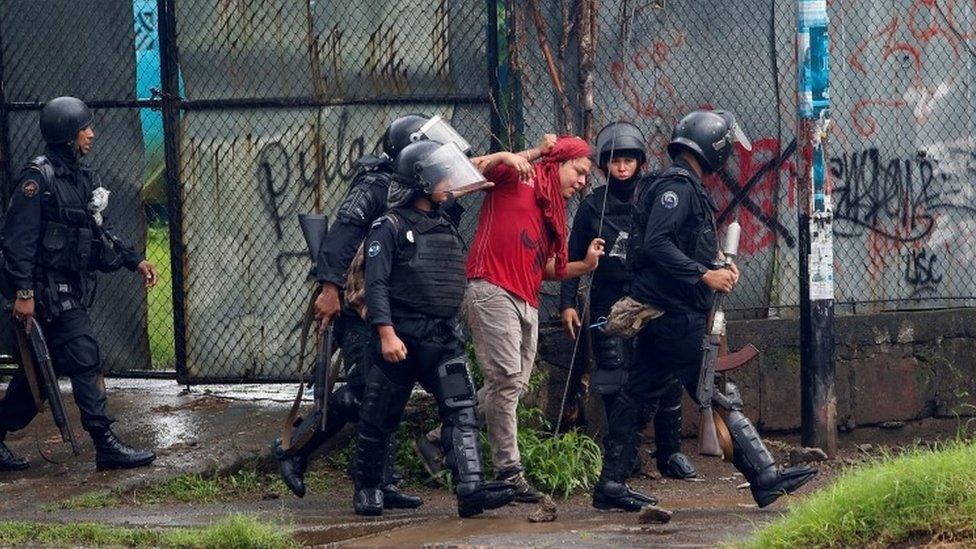Nicaragua crisis talks stall after mediators walk out
- Published
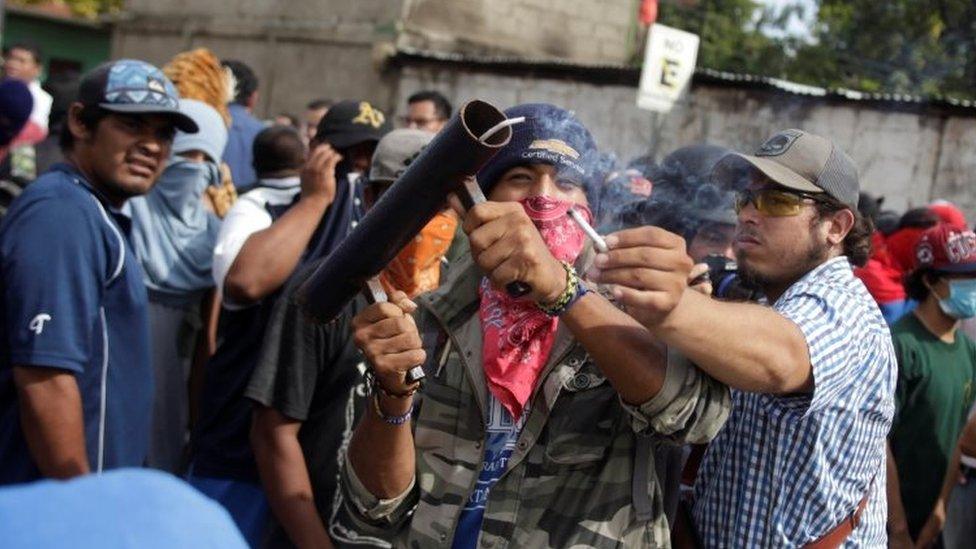
Anti-government protesters have been using homemade mortars
A fresh attempt at solving a deadly crisis in Nicaragua through talks has stalled after opposition representatives and Catholic Church mediators walked out.
At least 180 people have been killed since a wave of anti-government protests started on 18 April.
The mediators blamed the government for the failure of the latest negotiations.
They accused the government of breaking its promise to invite international organisations to Nicaragua.
Row over invitations
Both sides had reached an agreement on Friday to ask representatives of the Inter-American Commission on Human Rights (IACHR), the Office of the UN High Commissioner for Human Rights and the European Union to come to Nicaragua to help investigate the deaths and acts of violence.
However, when the opposition Civic Alliance asked to see copies of the invitations on Monday, government representatives could not present them.
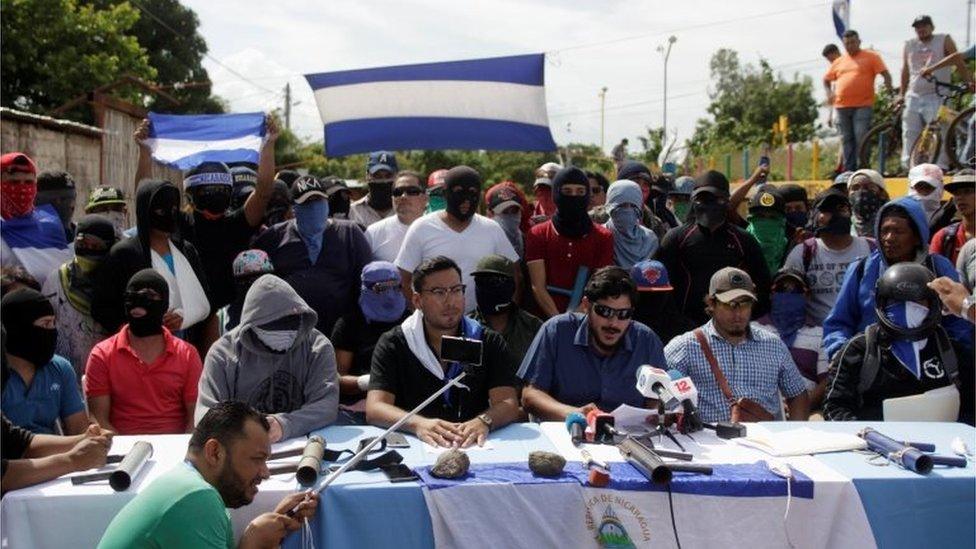
The opposition blamed the government for the latest breakdown of the talks
Foreign Minister Denis Moncada reportedly cited "bureaucratic" reasons for the failure to send out the invitations.
The Nicaraguan Bishops' Conference, which has been acting as mediator, said talks would only be reconvened "when the government sends us a copy of those invitations and the international organisations confirm to us they have received them".
With the opposition and the government deeply divided, international organisations have been key in documenting the violence which has swept through the country for the past two months.
On Monday, UN High Commissioner for Human Rights Zeid Ra'ad Al Hussein said that "the gravity of these developments" could merit sending an international commission of inquiry to Nicaragua.
Spiralling violence
The number of people killed in the past two months of protests and unrest is disputed. The Nicaraguan Centre of Human Rights says at least 180 have died while other human rights groups say the number has already surpassed 200.
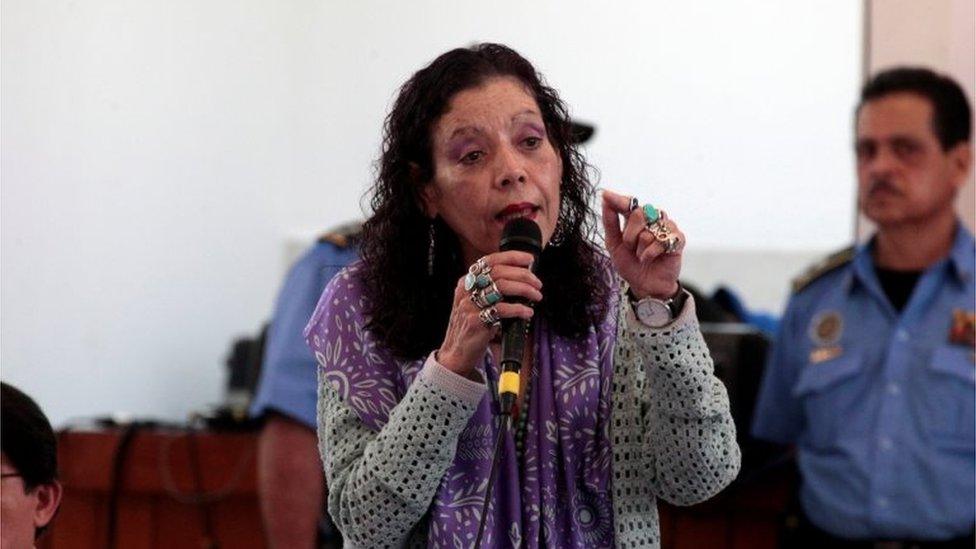
Vice-President Rosario Murillo blamed "evil spirits" for the violence
The crisis started quite unexpectedly when pro-government gangs violently crushed a small demonstration against reforms to Nicaragua's pension system announced on 18 April.
It has since turned into a popular uprising against Nicaragua's President, Daniel Ortega, who was elected to a third consecutive term in office in 2016.
Protesters' anger increased as security forces and armed pro-government groups violently repressed demonstrators, with casualties on both sides.
On Monday, Vice-President Rosario Murillo attributed the crisis to "an invasion... of evil spirits which want evil to reign in Nicaragua".
The protesters are demanding that President Ortega step down while the government accuses them of wanting to stage a coup d'etat.
- Published17 June 2018
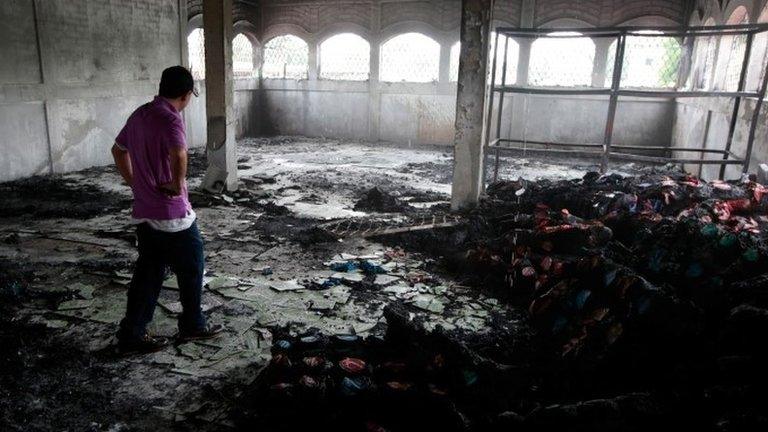
- Published16 June 2018
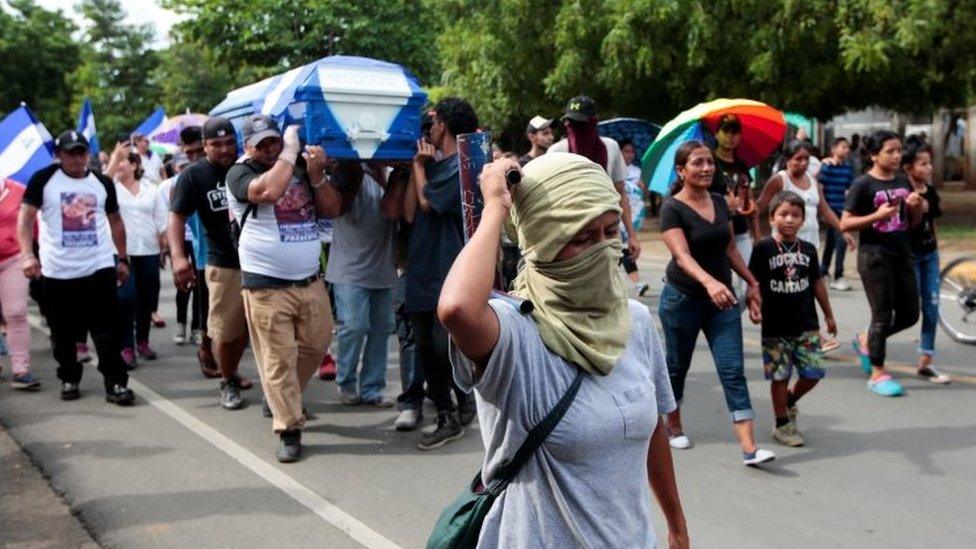
- Published15 June 2018
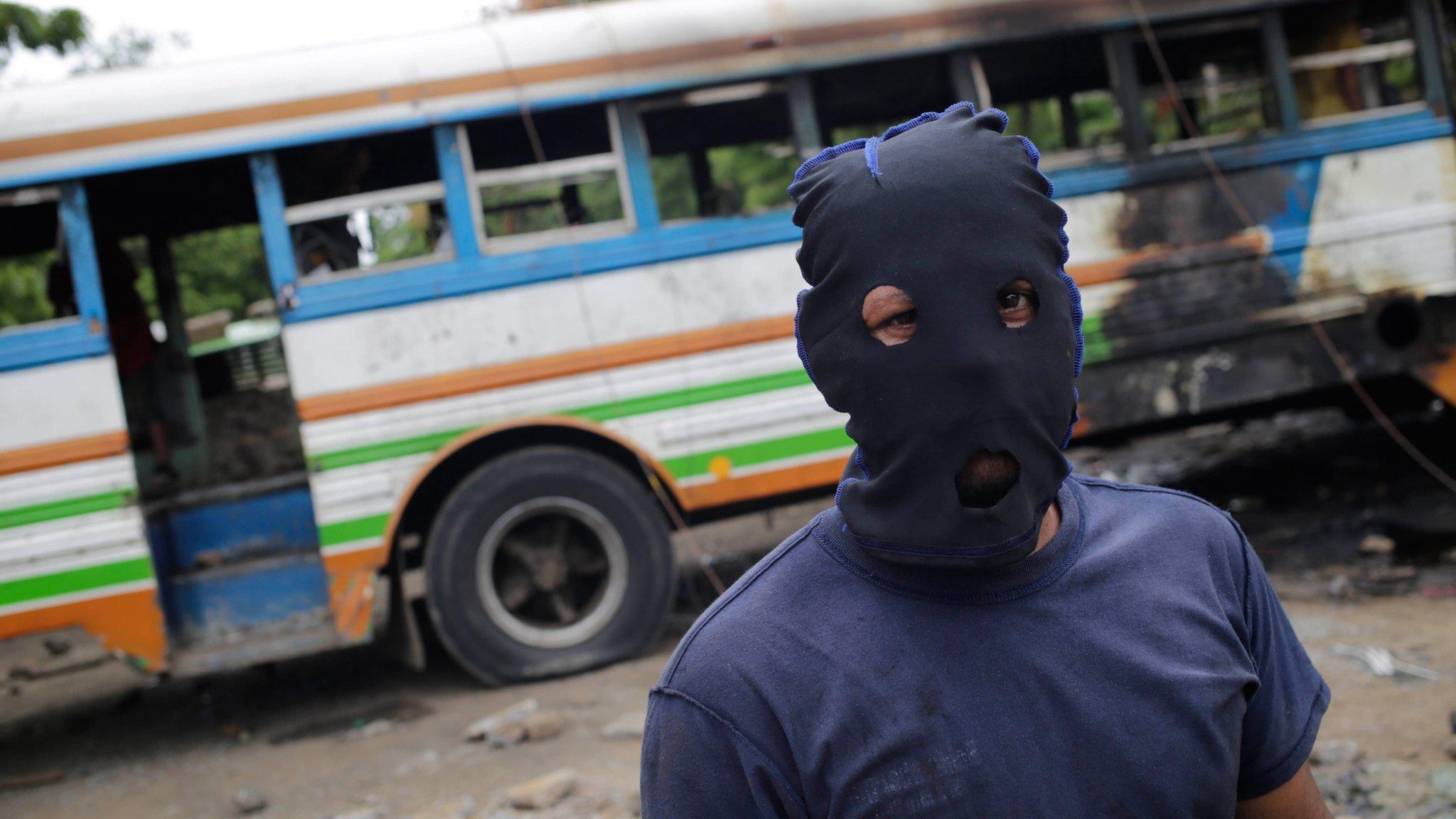
- Published29 May 2018
